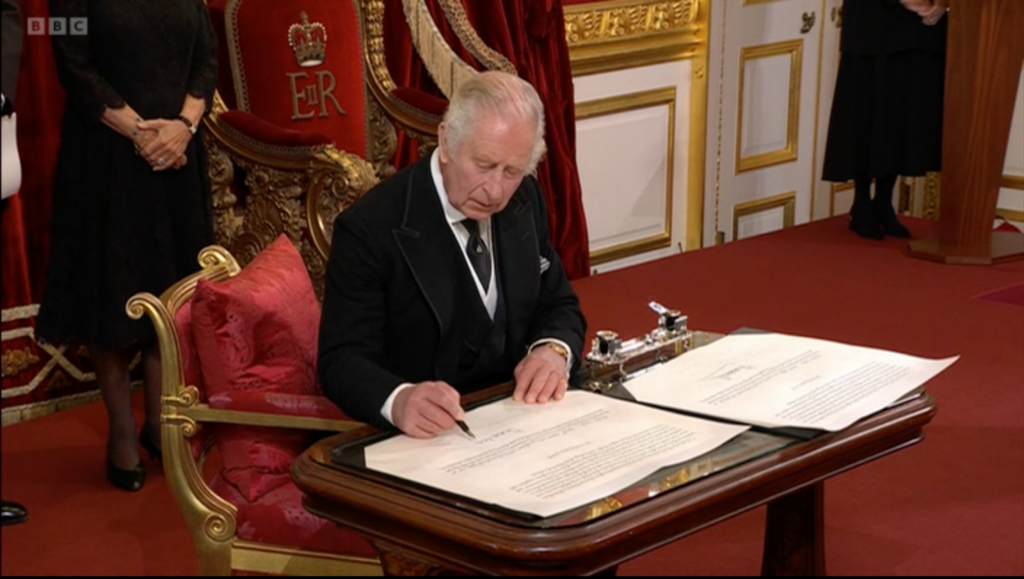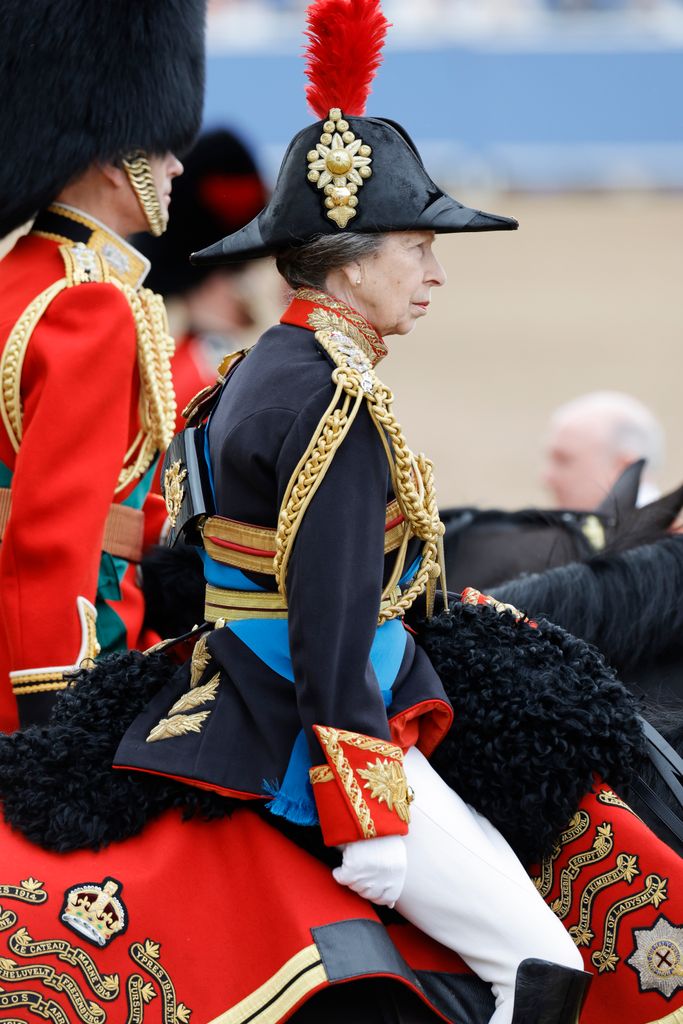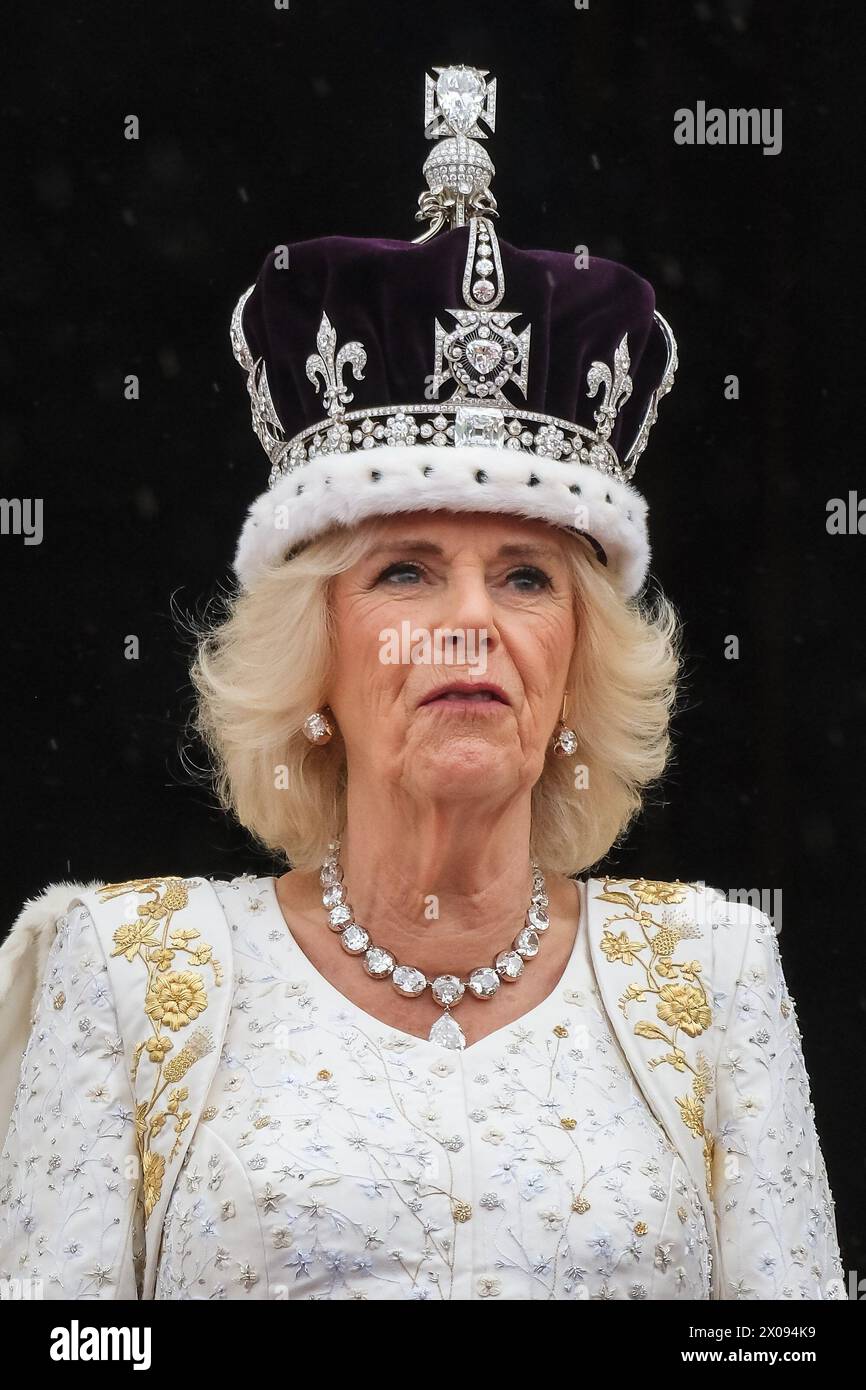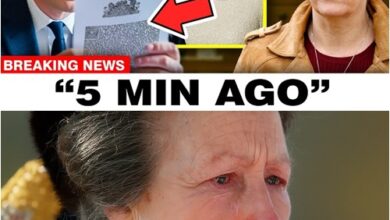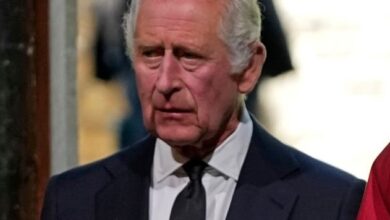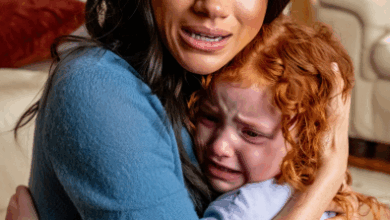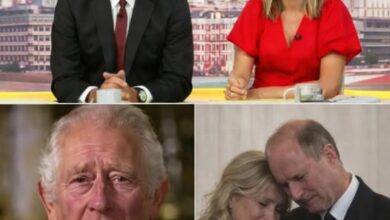RF.King Charles’s Shocking Edict: The Day Camilla’s Family Lost Everything
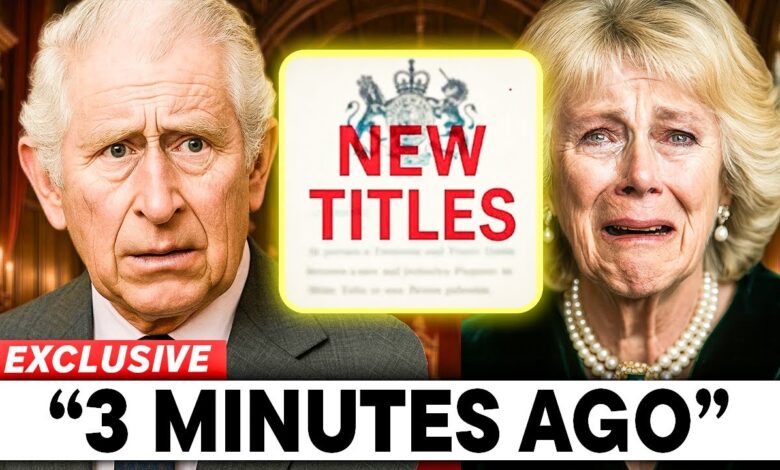

It was a moment no one saw coming. Behind the closed doors of Buckingham Palace, King Charles III signed a private decree that stripped Queen Camilla’s children of every royal privilege they had quietly enjoyed for years. No titles, no estates, no ceremonial roles, not even the quiet invitations that once brought them into the heart of royal life. With one stroke of a pen, the King dismantled decades of compromise and accommodation.
The decision came swiftly, without warning. When the edict was read aloud, naming Tom Parker Bowles and Laura Lopes directly, Queen Camilla’s face reportedly drained of color. Her children were not being sidelined. They were being erased. Security privileges, honorary positions, access to royal events—all rescinded, effective immediately.
For those in the room, it felt like history unfolding in real time. Some courtiers remained stunned into silence. Others, veterans of palace tradition, privately admitted to feeling a grim sense of justice. The family of the Queen Consort had long been granted privileges many believed overstepped the late Queen Elizabeth’s wishes. Now, those privileges had been wiped away.
The Spark That Ignited the Storm
The roots of the King’s decision trace back to what should have been a simple royal garden party. Laughter, teacups, and charity guests filled the lawns of Buckingham Palace. But one whispered remark changed everything.
According to palace insiders, Laura Lopes leaned to a guest and sneered about the Princess of Wales: “She’s nothing more than a commoner with pearls.”
Unbeknownst to her, a nearby footman’s device had been recording. The remark—cutting, cruel, and deeply personal—soon made its way into the hands of Prince William. He reportedly played it over and over, silent but seething.
Within days, the clip was leaked. Social media erupted. Supporters of Catherine, still inspired by her grace through illness and recovery, rose in fury. #StandWithKate trended worldwide. Headlines called it a betrayal that reopened the wounds left by Diana’s tragic story.
For Charles, already weakened by illness and weary of endless palace battles, the insult struck at the very core of what mattered most: his son’s wife, the future queen.
A Broken Promise to the Late Queen
But the insult was only the spark. The deeper cause lay in a private vow Charles had once made to his mother.
Before her death, Queen Elizabeth had extracted a promise: that Camilla’s role would remain his consort alone, and that her family would never hold sway over the monarchy. No titles. No ceremonial influence. No blurring of the Windsor bloodline.
For years, Charles had bent that promise. Quiet invitations, honorary roles, even small appearances tied Camilla’s children closer to the institution. Many inside the palace grumbled, but Charles, blinded by affection and loyalty, allowed it.
Princess Anne never approved. The Princess Royal, fiercely protective of her mother’s legacy, confronted her brother directly. “You promised our mother, and you broke that promise,” she reportedly told him. Her words cut deep.
That confrontation, combined with William’s fury and the public humiliation of Catherine, became too much to ignore. Charles realized the monarchy itself was at risk.
The Moment of Reckoning
In the quiet of his study, Charles reviewed every document, every title, every ceremonial affiliation granted to Camilla’s family. And then, with a trembling hand, he signed them away.
The edict was absolute. No honorary positions. No security privileges. No presence at state or royal events. Tom and Laura’s names were scrubbed from official rosters as though they had never been connected to the crown.
When Camilla read the decree, her fury shook the palace. She accused Charles of cowardice, of surrendering to William and Anne’s pressure, of betraying the love they had fought so long to legitimize. And then, with heartbreaking clarity, she asked the question that pierced the King’s silence: “Was I ever truly your queen—or just the woman who filled Diana’s shadow?”
Charles gave no defense. Instead, he handed her a letter written years earlier by his mother. In it, Queen Elizabeth had spelled out her fears: that Camilla’s family might one day overstep, and that Charles must ensure the monarchy remained pure in lineage and legacy. As Camilla read the late Queen’s words, the fight drained from her. She sat, stunned and broken, as her decades-long climb to legitimacy seemed to crumble.
Public Shock and Global Fallout
When news of the decree leaked, the reaction was instant. Some praised Charles for defending tradition and protecting the future of William and Catherine’s family. Others saw it as a ruthless betrayal of the woman he had fought decades to marry.
But the message was unmistakable: the monarchy was drawing a line. Bloodline, not marriage, would define the future.
For Camilla, silence became her shield. She withdrew from public appearances, her calendar cleared, her presence dimmed. Once the most controversial figure in royal history, she now faced a new reality—not disgrace, but irrelevance.
And for Charles, the cost was heavy. Alone in his study, he stared at old photographs of Diana and the Queen, wondering if his actions were about protecting the crown—or redeeming his own past.
A Monarchy Reborn or Broken?
The monarchy survives. The order stands. Camilla’s family is gone from its pages. Yet beneath the polished exterior, scars remain.
For William, it is a victory of principle, a promise kept to his mother’s memory and to his wife’s dignity. For Anne, it is the fulfillment of her mother’s wishes.
But for Charles, it is something darker. The love that once defined his defiance has become the casualty of his reign. And history may forever remember this as the day the King chose the crown over the woman he once sacrificed everything to protect.
